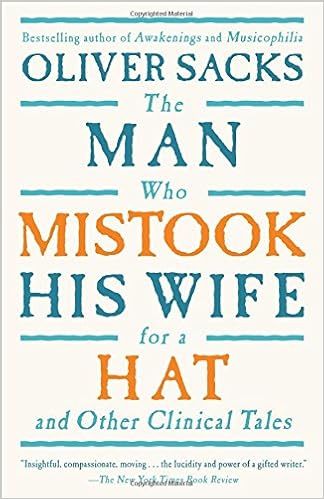The book consists of what the author calls 'case histories' or 'clinical tales'. In other words, the book is a collection of descriptions of patients with different neurological impairments; how the impairments have come about, how they manifest themselves (e.g. mistaking people as inanimate objects, as in the book title) and how the patients cope and even sometimes appreciate and enjoy their altered states.
The book, however, must not be taken only as a collection of curious cases (though it is also that), but in addition as advancing quite consistently a message according to which such impairments must not be seen as mere deficiencies but often as different, non-standard ways to perceive and appreciate the world - at least in cases in which the impairment is not debilitatingly severe.
Was it good?
The book is highly interesting and engaging in both of its modes or readings; as a collection of curiosities and as a celebration of the variability of human experiences. Furthermore, the case histories are written in such a way that the text elicits great sympathy and empathy in the reader (at least it did so in my case), making the reading experience quite resonant.
The main take-away for me?
The main take-away for me certainly was the appreciation of different ways to appreciate the world and life (e.g. with heightened sensitivity to sounds or smells, or experiencing life through music). Moreover, it fails to astonish me how resilient human beings can be when facing or undergoing quite drastic adversities; finding pleasure or comfort in quite small or mundane life's pleasures.
Who should read the book?
The book most probably appeals to most people, and - as suggested above - can be enjoyed in either or both of the two levels. I can't quickly think of a kind of a reader who would not enjoy or appreciate the book. If, however, one has already read one book by the author - Oliver Sacks - there may be 'diminishing rate of return', so to speak, in reading more books by him as the message and some of the cases are the same or similar from book to book.
The book on Amazon.com: The man who mistook his wife for a hat

No comments:
Post a Comment